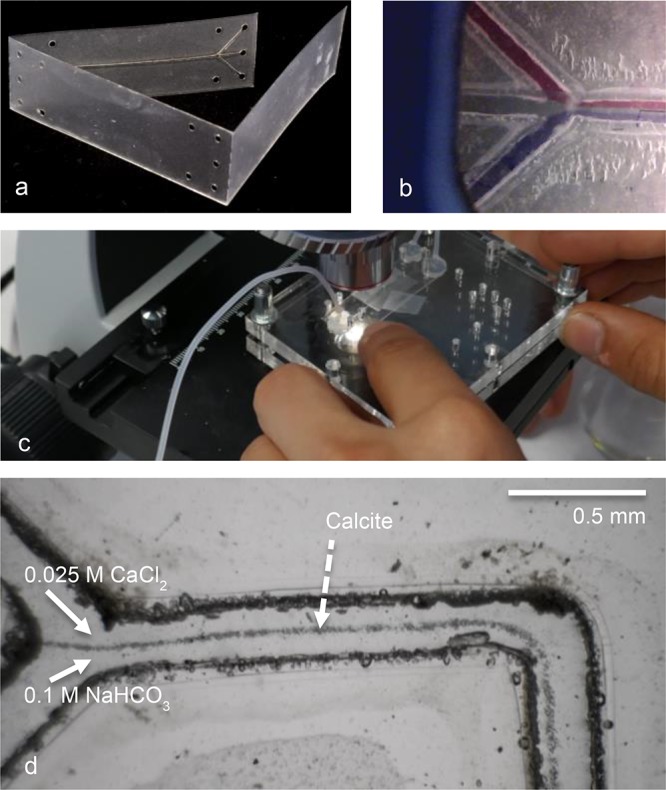Figure 7.

Laser-cut demonstration chips, which can be modified or redesigned by learners. (a) Laser-cut foil chip, made from 80 mm GBC High Speed laminator foil. The chips produced (outer dimensions 45 mm long, 15 mm wide, and 0.24 mm thick) are fitted on top of a 1 mm thick support plate, in the mount of the lab-on-a-chip holder. (b) The first prototype chip, showing trilaminar flow, in the chip holder. (c) A laser-cut Y reactor chip, mounted in the acrylic glass (PMMA) holder, connected with silicone ferrules. In this experiment the formation of calcite precipitate is studied, as described by Chia et al.5 (d) Calcite precipitate visible in the first part of a laser-cut serpentine mixer channel (width 100 μm, produced from 125 μm thick Leitz foil), from 0.025 M CaCl2 and 0.1 M NaHCO3 solution with syringe pumps at a flow speed of 45 μL/min. All details of the design of the foil chips and the PMMA holder are described in the Supporting Information.
